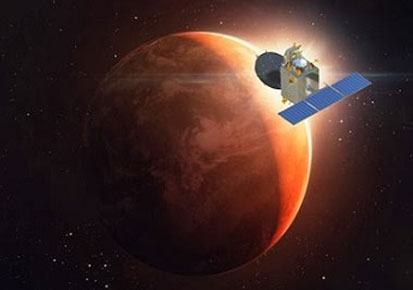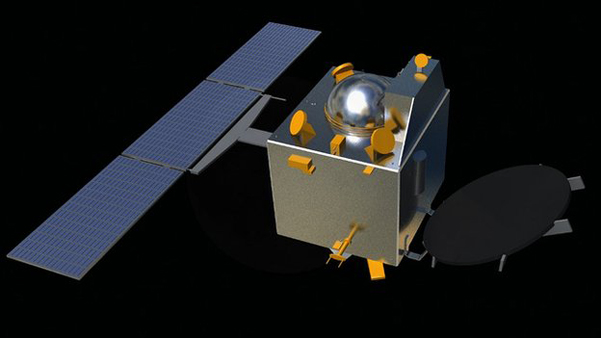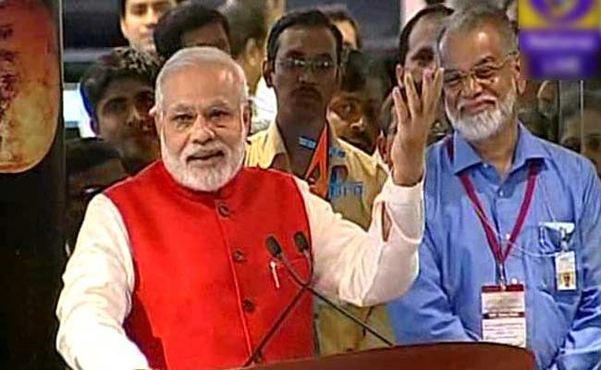Mangalyaan enters Mars orbit
India has successfully put a satellite into orbit around Mars, becoming the fourth nation or geo-bloc to do so.
The Mangalyaan robotic probe, one of the cheapest interplanetary missions ever, will soon begin work studying the Red Planet’s atmosphere.
A 24-minute engine burn slowed the probe down enough to allow it to be captured by Mars’s gravity.
 Indian Prime Minister Narendra Modi said the country had achieved the “near impossible”.
Indian Prime Minister Narendra Modi said the country had achieved the “near impossible”.
Only the US, Russia and Europe have previously sent missions to Mars, and India has succeeded on its first attempt – an achievement that eluded even the Americans and the Soviets.
The latest US satellite, Maven, arrived at Mars on Monday.
US space agency Nasa congratulated its Indian counterpart, the Indian Space and Research Organization (ISRO), on Wednesday’s success.
“We congratulate ISRO for its Mars arrival! Mars Orbiter joins the missions studying the Red Planet,” the agency tweeted.
From early in the morning, there was an atmosphere of excitement and tension at the Indian space agency’s mission tracking centre in Bangalore.
Scientists, many of them women and several of them young, were seated in front of their computer monitors tracking the progress of Mangalyaan.
Giant screens above their heads fed a steady stream of data, graphics and sequence of operations. The first whoops broke out when Mangalyaan successfully fired up its liquid engine, the first in a series of critical moves to make sure that the spacecraft was able to get into the planet’s gravitational pull.
Then there was an agonising 20 minutes, when Mangalyaan disappeared behind Mars and beyond contact.
But there was no mistaking the moment, when the scientists all rose as one, cheered, clapped, hugged each other and exchanged high-fives – confirmation that Mangalyaan was now on an elliptical orbit around Mars.
After PM Modi’s congratulations, they poured out into the open and the bright sunlight, beaming as they took in the adulation.
“Thrilled to be a part of history,” told one young scientist. “It’s like hitting a golf ball from Bangalore to London and getting it into the hole in one go,” deputy operations director, BN Ramkrishna said. “It’s got to be that precise.”
News Courtesy: www.bbc.com




